In a couple weeks I get to baptize a little boy named Grant.
Grant was born missing his left arm below the elbow, just like me.
I was telling my son about it and he goes, “So, a one-armed guy is baptizing a one-armed baby? Weird.”
I asked him why he thought it was weird and he just shrugged. I dug a little deeper and it turned out he was somewhat freaked out by a baby with one arm. He’s used to me; his daddy with one arm. But, that doesn’t mean he’s automatically comfortable with other people who are different than him.
I’ve never really thought about teaching my kids to accept others who are different than them. I guess I just figured they’d do it automatically because I only have one arm. The truth is, though, that’s not how it works. They’re used to me, sure, but that doesn’t make them impervious to the natural tendency to be uncomfortable with others who are not like them.
I’ve gotten so many comments from parents of kids who are missing limbs since I launched this site. I promise you, nothing makes me happier. Every time I hear from a mom who says her son watches my videos or a dad who is encouraged to see that his son will be able to live a normal life, I smile from ear to ear. It brings me great joy to help and encourage in any way I can. As far as raising limb-different children, though…I can only share my experience of being raised as a limb-different person. I’m inspired by the parents who write to me. They are the heroes here.
Some of their stories break my heart. The stories about their kids being followed around on the playground, being made fun of and gawked at. I don’t remember ever experiencing that myself. Maybe I blocked it out of my mind. I’ll ask my mom. Those stories are what inspired me to write “How To Survive Being Stared At.” These kids deserve to know they are valuable and loved and created perfectly. People can be cruel. And kids can be cruel and not even be aware of it.
As a dad, that’s what I’ve been thinking about lately. I have work to do with my own. They certainly aren’t mean or rude and they probably have a bit of a head-start with me as their father, but I still need to be intentional about teaching them to accept others who are not like them. For a kid, that’s nearly everyone, too. People who are really tall or very short, very black or lighter brown, very skinny or overweight, people in wheelchairs and people with walking-sticks…the list goes on and on. And every single one of those people deserves to be treated with respect and kindness. That’s what I want to teach my own kids.
Then again, these are their best friends:
I guess we’re doing something right.
How do you teach your kids to be accepting of those who are not like them?







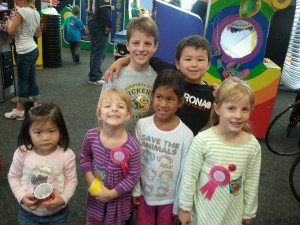






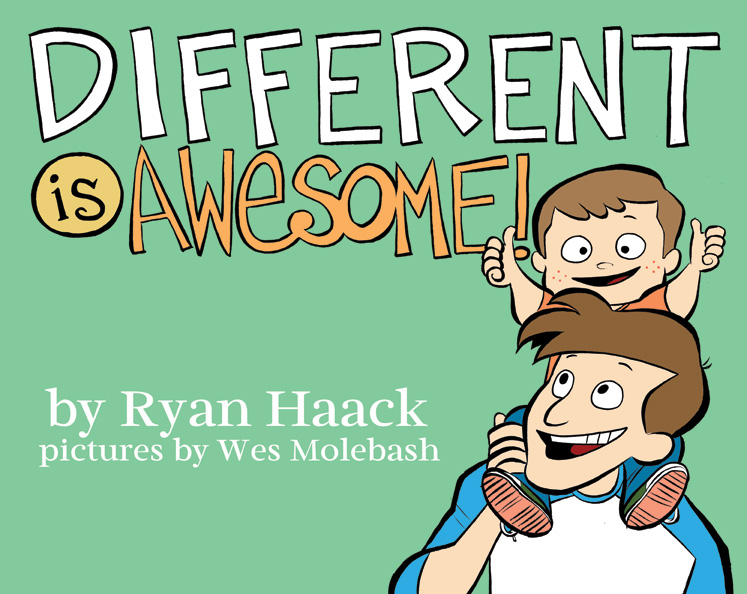

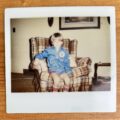
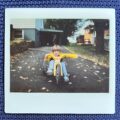
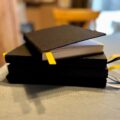


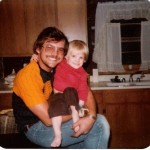
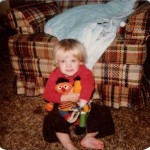
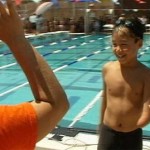
I’ve learned as a parent of a limb different child, even she needs periodic reminders about awareness and acceptance of differences. A kid without a limb or four? No big deal. But put her near a person with a different kind of challenge? She might stare or whisper. Her brother is probably more aware an accepting… Of course he’s also four years older. That helps. Thanks as always for your perspective!
Isn’t that interesting?? I totally get it! Thanks for sharing, Jen!
As Mom to a one handed boy I’ll say I also have to work at teaching him to be accepting of other people who are different. It was strange to get a note home from a teacher telling me he was being mean to another boy in his first grade class. When I asked him why he said it was because the boy was different (dark skinned, spoke with an accent). That’s when I realized my son doesn’t think HE is different. I had to point out to him how he feels when people ask or tease about his hand. They became friends the next day.
That is so funny! Well, not funny, but…you know what I mean. I actually got sent to the other room on my first day of kindergarten because I was making fun of another kid’s name. Oh, the irony! We, too, became best friends. 🙂 Thanks for sharing!
When we went to the helping hands meetup in Cincinnati this summer, my one-handed 5 year old pointed and stared and said “mommy, look!” at a kid who had finger nubbins on his arm. There was no correlation in his little mind between what he was doing and what kids do to him. You’re right, it doesn’t happen automatically, because there’s always someone different from US.
Funny about your son – I always think it’s odd to see an adult with one hand, but a one-handed baby seems totally normal. It’s all about perspective and experience! 🙂
Yep, that’s totally true! I think we’re ALL that way. Thanks for sharing, Patti!
I’ve noticed something similar in our family. Adria (5) is so ok with her 7 yr old brother missing part of his arm, but she seems almost unsettled when she sees someone else with a similar difference. It’s been very interesting to watch her process & ask questions about others with any kind of difference/disability.
Our montra, when Micah came home (adopted from China) was, “That’s how he was born; that’s how God made him.” We wanted something simple, straight-forward & honest for those who were interested & those who were nosey. 😉 Our answer gave them enough info so they felt like their question was answered, but no more info than necessary. Also, it was something Micah could use to reply to others.
Adria now uses it…she’s fiercely protective of others staring at her brother & tells them his arm isn’t broken & that God made him that way & that he has a prosthesis.
I hope others chime in…I’m interested in hearing their experiences.
Sheri – It’s been so fun to get to know you and Micah’s video was the highlight of our night! Adria sounds like a fantastic sister. 🙂
Thanks for being so supportive and I look forward to getting to know you guys even more going forward!
My 5 year old son, Noah, was also born with one hand, and we say the same thing, “That’s just how he was born. That’s the way God made him.” I do wonder, though, if it is right to say that God made his arm without a hand on purpose. He allowed it to happen, and I’m sure that His plan is to use his limb difference for His good purpose, as Noah allows Him to work though him. I just worry that Noah may get angry with God if he believes that God intentionally made him without his left hand. Theologically, I’m not sure which is correct, because I know God can do whatever He pleases, but for now, we try to make sure that Noah knows that he is special, that he is wonderfully made, capable, and that if he follows after God with his whole heart, that God will use him in amazing ways. Any thoughts here, Ryan?
Really good thoughts, Melanie. I really do believe God made me this way. You’re right, there is a risk there that it could be looked at negatively, but I think if you emphasize the positive and the positive difference Noah can make in the world, it will really open up an exciting opportunity for Noah. Thanks for sharing!
My daughter was born with a total of 7 fingers, and she later underwent leg amputations at the knee due to bone anomalies. However, she can do anything with her hands that others kids can do, and she can walk and run just fine on her “nubbies,” so when kids ask “why doesn’t she have ten fingers” I just say “because she doesn’t need them. She is really good with her hands and can do everything with only 7 fingers.” Similarly the other day a child asked why my daughter doesn’t have feet, so I said “because she doesn’t need them, she walks just fine without feet.” I find this puts the difference in a positive light, allowing the other child to see my daughter, not as missing something, but as having such great ability that she simply needs fewer materials to work with.
This is fantastic! Thanks for sharing, Miranda!
I’m Grant’s aunt. I have two sons, 5 and 8. When Grant was born, we showed them pictures of Grant. They didn’t even notice that he was missing a hand! Now, they think of reasons why they wish they only had one hand, for example, it wouldn’t take so long to cut your fingernails 🙂 We try to expose our boys to lots of differences – we enourage playdates with families from other countries and we have a great family that we are friends with who have a son with Down’s. We talk about the differences very matter of factly, and we also talk about the differences amongst “normal” people – different preferences, tastes, height, weight, capablities, etc as things that make them special. My older son thinks kids in the gifted program at his school are different because of that, in the exact same way that his friend with Down’s is different. I’m glad Grant is going to grow up in an environment with so much acceptance and love; I know it’s not perfect, but people who are “different” are part of mainstream so much more effectively than, eg. 50 years ago. We look forward to meeting Ryan at Grant’s baptism and are grateful that he is willing to do the honors!
Can’t wait to meet you all, Jeanne! I think it’ll be a ton of fun. 🙂
And it sounds like you’re doing a fabulous job with your boys. Thanks so much for sharing!
My kids and I love watching your videos and as a teacher who is constantly working to teach preschoolers to be kind and loving to everyone I appreciate the insight. You’re right, we’re born egocentric and it’s up to our parents to teach us that it’s not everyone that is different from us but rather that each of us is unique and while it is the ways that we are different that often set us apart, it is the ways that we are all human that bring us together.
So true, Heather! Glad you like the videos! 🙂
I’m enjoying your website very much as my husband and I are about to complete an adoption from China for a baby girl born missing 1 hand. Looking forward to following your site and learning from others! We are so excited to see all that our daughter can do! We think she’s fearfully and wonderfully made!
That’s so awesome, Brooke! I can’t wait to hear all about the adoption and your new little girl! 🙂
love this Ryan, and I love the site! keep it up!
Thanks so much, Bryan! I really appreciate it. Thanks for all your help and encouragement. Can’t wait to actually meet someday! 🙂
I almost made a winky face. That would have been awkward.
I have a tool that might WILL engage kids about the subject of limb loss and even illness and change. My self written and illustrated book, “Boo-Boo’s New Leg: A True Story of Illness, Acceptance and Healing”. I wrote it in honor of my best friend who became ill and needed her foot and then leg, amputated. It is written from the narration of a 10 year old who explains the journey of her mom’s best friend’s illness from the time she was about 2years of age. I hope to see people using it as a inspiration and educational piece of literature. 😉
error– It WILL engage- not might will. 😳
I am a stepmother with a limb difference and my little girl was 2 when she noticed my hand I have a palm a thumb half an index and middle finger and nubbins for ring and pinky fingers. I was scared of the day she noticed, but she picked up my left hand looked it over kissed it and said it was just her size then interlaced her fingers with mine and hugged my arm… we have worked very hard in letting her know that everyone is different and weird in their own ways… she is now 8 and I haven’t seen or heard her bully anyone for being different…so far so good!
That’s cute! Thanks for sharing!
I realized early on that my daughter with bilateral above knee amputations since one year old still has to be taught not to point and make comments about other people’s differences, even as it is done to her. I remind her periodically that she can always ask me about anything she sees that she doesn’t understand, but it needs to be privately, because if someone hears us talking about their body it might make them shy. I was dismayed to find early on that she is fightened of people who look different, finding them scary. Of course I thought to myself “YOU of all people CANNOT be scared of people who look different!” I made it a point to introduce her to various differences by sharing youtube videos and magazine articles about people with various noticeable differences (like Vitiligo, severe scoliosis, dwarfism, etc.) By the age of 3 she had the social etiquette down, as I realized when we encountered a boy with severe facial deformities (I am certain he had Treacher Collins Syndrome) and a cochlear implant. She made no apparent notice of him, but after he left she quietly asked me why he had that thing stuck to his head. I explained that it is a tool to help him hear since his ears don’t work the way our do. Interestingly, she wasn’t particularly shocked by the severe facial deformities… I do wish all parents made as great an effort to inoculate their children to the “shock” of people who look different, as my daughter has heard such words as “creepy, weird, and crazy” to describe her legs